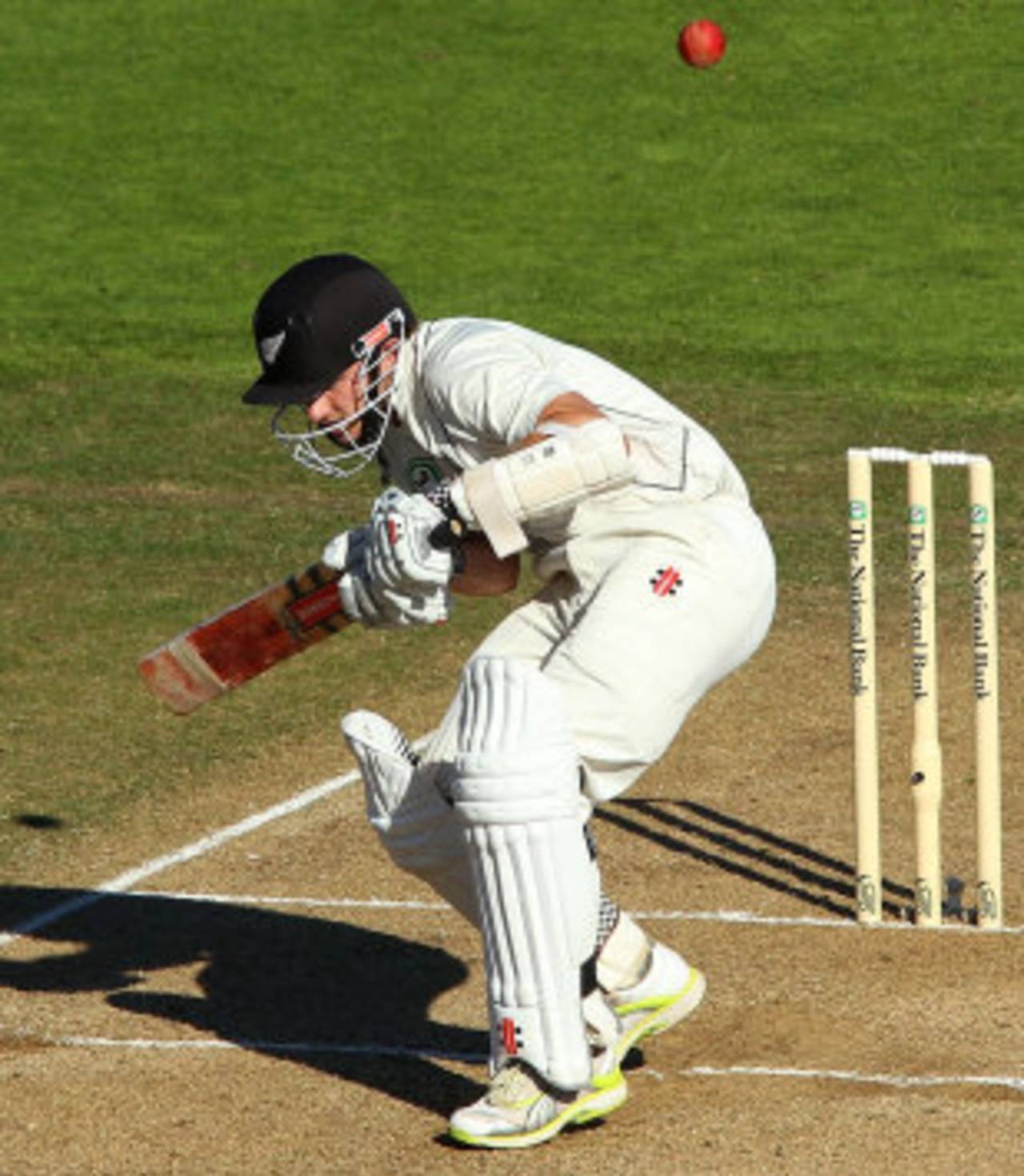Kane Williamson did what no other New Zealand batsman managed in this series. He crossed the three-figure mark and showed the temperament required to play South Africa's hostile attack, something the New Zealand line-up had lacked through the three Tests.
His hundred was far from flawless: he was dropped twice and survived a close call when the third umpire decided a catch by Alviro Petersen, at point, was not taken cleanly. The century was a fighting one. Williamson drove well, cut well, pulled well, but, more importantly, stayed at the crease well. He wore a few, got hit where it hurts and saw some of the senior batsmen come and go, but he stuck it out.
"I'm not quite sure Kane has realised what he has done just yet,"
Brendon McCullum said, "but in terms of New Zealand cricket history it will go down as one of the gutsier innings and one of the more fighting efforts on the last day against this sort of attack."
It was the kind of fighting effort New Zealand could have done with earlier in the series, which they have lost 0-1. Their totals may give the impression of a fragile, inexperienced line-up, but all of New Zealand's batsmen showed, at one point or another in the series, that they do have the ability to make it at Test level. They showed the ability to face some of the best bowlers in the world, but it was their mental game that let them down. They got in, they staved off South Africa's attack for a while and then gave it away.
Apart from McCullum and Ross Taylor, none of New Zealand's top-order batsmen had played more than 20 Tests coming into the series, yet everyone from Rob Nicol to Kruger van Wyk showed promise. In each case, though, that promise was stubbed out because, at some stage, the batsman lost concentration. When they got into positions of strength, they did not know how to stay there but Williamson gave them a small glimpse of how to play a long innings.
"I turn [a big ask] into small tasks, and take it one over at a time," Williamson said. "There's two of you so you can kind of halve the job, and all of a sudden one session, which might be 36 overs, becomes a lot simpler in terms of the thinking around it. We were just counting down the overs and splitting them in half."
Williamson remained at the crease for 75.5 overs, 44.4 of them with Nos. 7 and 8, van Wyk and Doug Bracewell. He said he never felt safe at the crease as South Africa attacked in waves, the biggest of which came early in his innings, after South Africa were disappointed that the umpires allowed Williamson to continue when they thought he had been caught at point. "It comes and goes a little bit," Williamson said of South Africa's aggression. "As you start getting underway and gathering a little bit of momentum, the opposition side tend not to say as much, and then if there's a debatable catch they come at you a little bit harder. They came quite hard after the catching incident, which is to be expected. It's about trying to weather that and fight through it."
Williamson used various tactics to deal with the pressure South Africa exerted: he blocked out a lot of what was said to him, and sometimes saw the lighter side of things, particularly when Dale Steyn was fuming after the debatable catch. "We decided to enjoy it, take it one ball at a time and experience it," Williamson said.
That sort of attitude will have to be applied more regularly if New Zealand hope to have sustained competitive spells against teams ranked higher than them. McCullum said New Zealand had identified the areas they needed to work on in what will be a busy Test year. "You have to bat for long and you have to make some really good decisions along the way," he said. "We haven't been able to do it through this series but we now know what we have to do to get better as a batting group."
Edited by Dustin Silgardo
